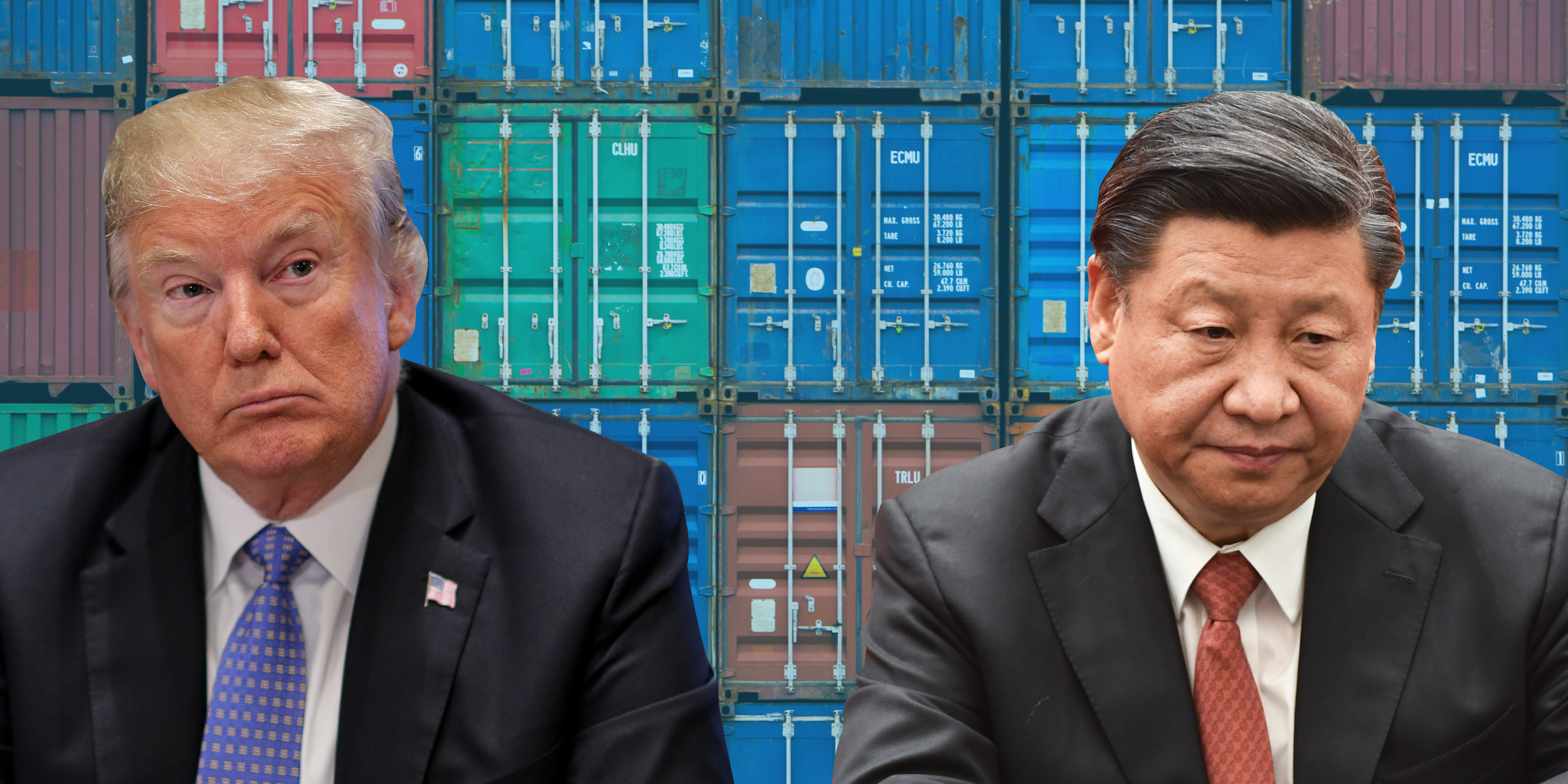- President Donald Trump insists that the extra tariffs he has levied on China in his trade war are being paid by the Chinese. Almost no economists agree.
- The International Monetary Fund (IMF) confirmed this on Thursday, with a study which found US importers are actually absorbing the extra costs from the tariffs.
- American and Chinese consumers have also suffered in the form of price rises, and are “unequivocally the losers” of the tariffs, the IMF said.
- Visit Business Insider’s homepage for more stories.
US importers are paying “almost entirely” for the tariffs that President Donald Trump’s administration has imposed on Chinese goods in the trade war, according a new study by the International Monetary Fund (IMF).
“Tariff revenue collected has been borne almost entirely by US importers,” the IMF said in a Thursday blog post, citing data from the US Bureau of Labor Statistics.
The statement knocks another hole in Trump’s already-threadbare claims that China is paying the extra cost of the tariffs, in what the President has attempted to paint as an economic masterstroke.
The US and China are embroiled in a yearlong trade war, in which both sides have imposed hundreds of billions of dollars’ worth of extra tariffs on one another’s products.

Consumers 'unequivocally the losers'
The IMF said that the extra tariffs have put US importers in a lose-lose situation, with two options:
- Pass the cost on to consumers by hiking their prices.
- Keep prices the same and make less profit.
The same dynamic exists in China, where companies there have to decide how to process increase tariffs on US products. However, China imports fewer US goods, so the overall effect is smaller.
Ordinary people in both countries are "unequivocally the losers" from the trade war, the IMF said. They are likely to bear the brunt of any further tariff increases, which the Trump administration has threatened to impose.
"While the direct effect on inflation may be small, it could lead to broader effects through an increase in the prices of domestic competitors," the IMF said.

The impact of the trade war on producers is less clear, according to the IMF's analysis.
US and Chinese producers of the goods that have been affected by the tariffs, and the manufacturers which use those goods in their supply chain, are all "potential losers," IMF said.
Trump has repeatedly insisted that China and foreign companies are the ones suffering as a result of the US tariffs, despite numerous economic studies saying otherwise.
The president on Thursday also sought to row back an acknowledgement from his economic adviser, Larry Kudlow, that American consumers pay for the tariffs.
What Kudlow said was: "In fact, both sides will pay. Both sides will pay in these things."
He continued by saying "the Chinese will suffer GDP losses and so forth with respect to a diminishing export market and goods that they may need for their own."
Trump claimed that media outlets were twisting Kudlow's words by only quoting the first part. He said: "Larry Kudlow was quoted but they didn't have the second part of the quote, which was a very good quote."
A spokesperson from Fox, where Kudlow made the remark, confirmed the show aired the interview in full, Markets Insider's Gina Heeb reported.

US imports from other countries, such as Mexico and Vietnam, have jumped since the trade war started.
Vietnam's trade surplus with the US jump 45.5% year-on-year to $13.5 billion in the first quarter of 2019, according to the Financial Times.
The US increased import taxes to 25% from 10% on $200 billion worth of Chinese goods on May 10, and China retaliated three days later by announcing tariffs on $60 billion worth of American products.
Later that day, the Trump administration threatened to raise levies on another $300 billion worth of Chinese goods.
Chinese state media has called for a "people's war" against the US, and also recorded a trade war-themed propaganda song with the lyrics: "If the perpetrator wants to fight, we will beat him out of his wits."

